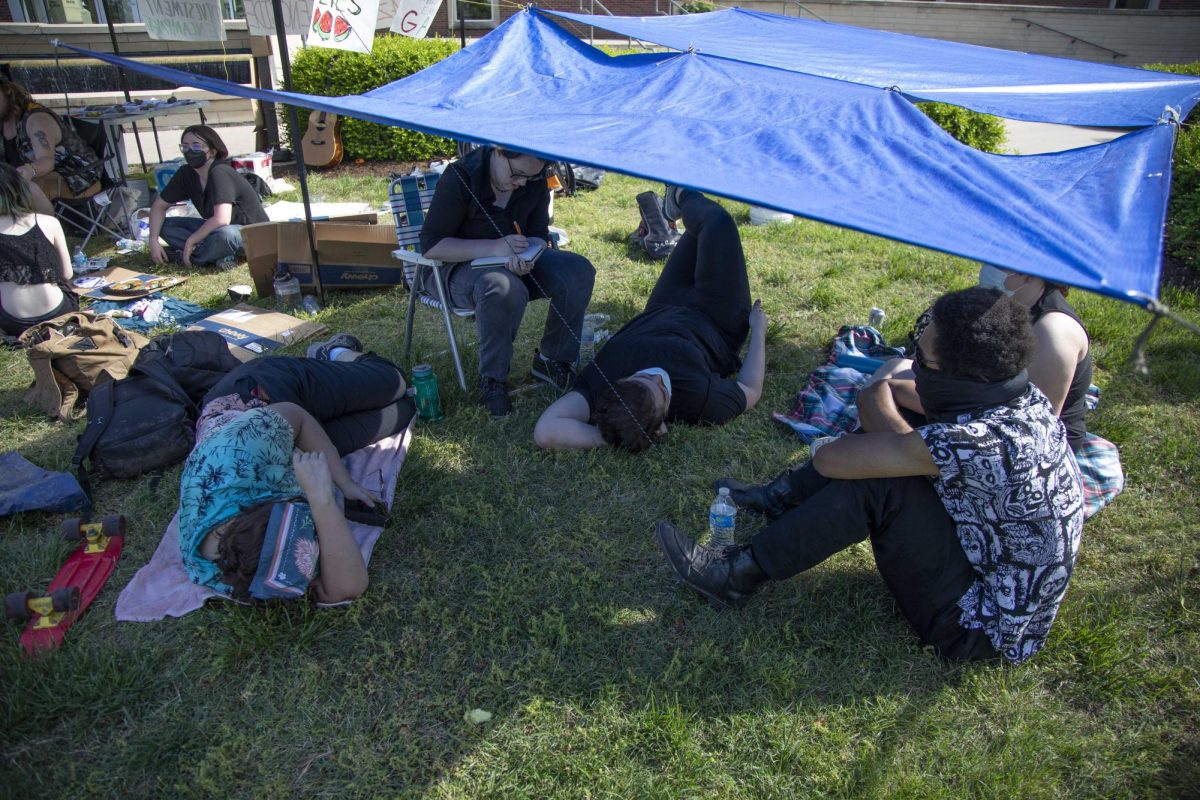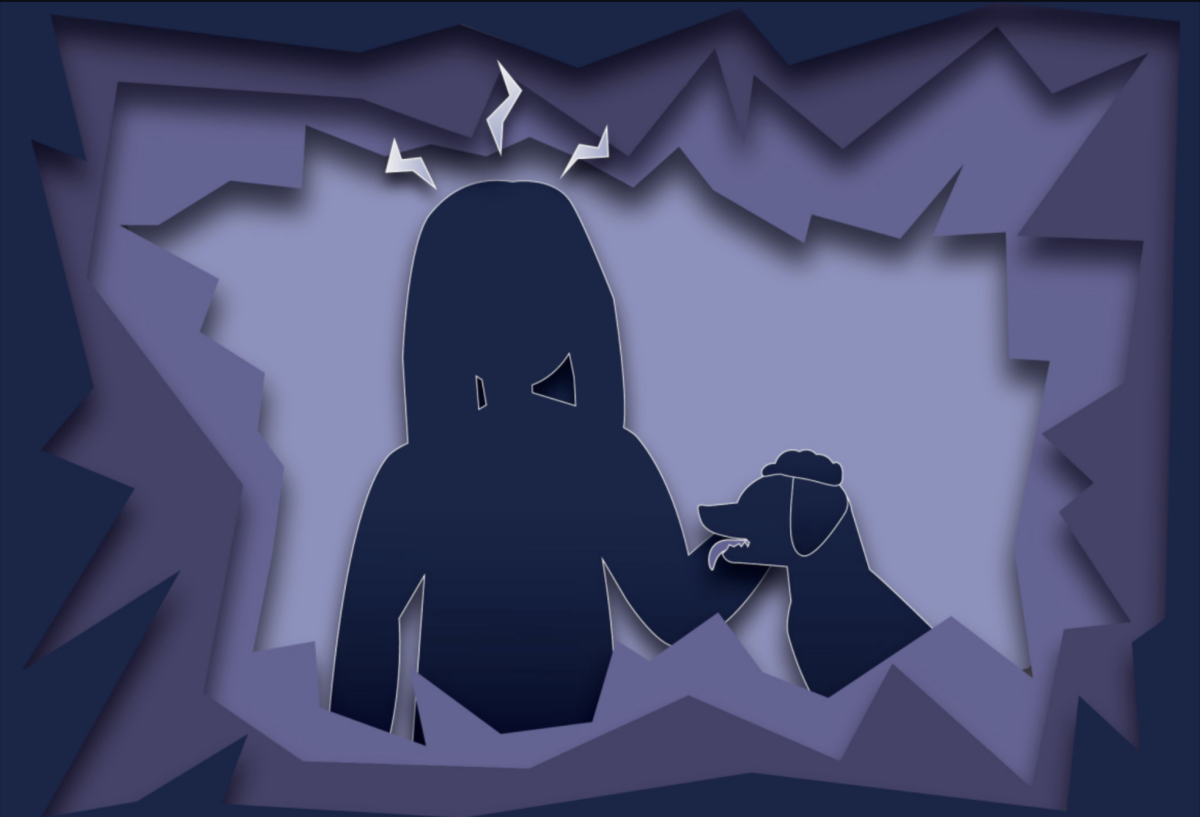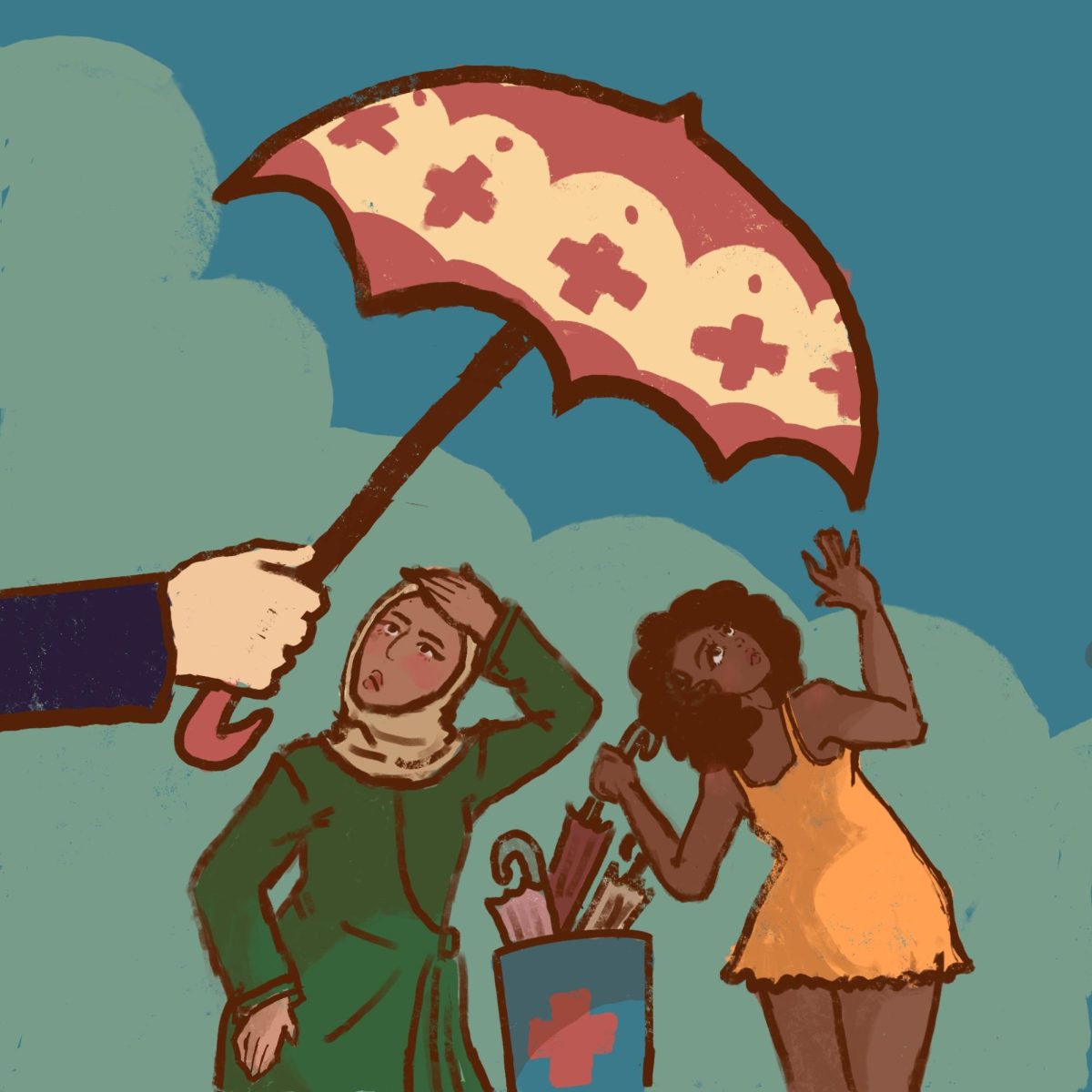The Gaza Strip stands as a testament to the resilience of its people. The conditions of their livelihood are unbearable; Gazans have been enduring hardship since before October 7th, 2023. The constant missile attacks from Israel on the Gazan civilians have inflicted a heart-wrenching toll on civilian lives. At the heart of this issue lies a war on children, a war on innocence that should have been protected.
More than 27,100 Palestinians have died since October 7, At least 11,500 of them were children. This number was provided by the Palestinian Ministry of Health. Despite the skepticism of the U.S. and Israeli governments, the Ministry provided a list of every citizen whose life was lost, refuting any doubts raised.
The war on Gaza did not start on October 7. Before this date, the Gazans’ livelihood was extremely constrained. The borders of Gaza are heavily militarized, controlled by Israel with firm regulations on entry or exit, having the unfortunate title “the open-air prison”. Additionally, access to waterways such as the sea is restricted to Gazans, while Israel also asserts direct authority over Gaza’s electricity and water resources.
Advertisement
Other restrictions for the Gazans (and all Palestinians) include the use of Erez crossing, a mode of transportation into Israel and West Bank territories prohibited for Gazans without a specified work permit, which entails a dehumanizing experience. Palestinian families have been torn apart, with individuals in different regions unable to reunite. Gazans traveling to Jordan have been prohibited from the human right of freedom of travel in the name of Israeli “safety” precautions, further isolating the Gazan population. Israel’s control over Gaza’s borders has profoundly impacted Gaza’s economy, forcing many children to leave their education to assist their families in securing food and finances.
Despite Israel being a state party to the Fourth Geneva Convention, Israel’s restrictions and closure continue to violate the rights of civilians living under military occupation. Israel adopts “broad powers and discretion” over entry into its territory with increased obligations towards Gazan residents, making Israel an occupying power despite its military withdrawal in 2005. International law still recognizes Israel as an occupying force.
Children, the most vulnerable victims of conflict, not only endure the complete demolishment of their homes and physical afflictions/injuries, but they also carry with them lasting mental scars. Gaza has faced many missile bombardments from Israel. For instance, the events in 2014 left children with trauma from attacks on their homes, loss of loved ones, or life-changing physical injuries. Israel has attacked farming areas, destroying the agriculture of the region. Currently, many children are suffering from hunger, as Israeli citizens block humanitarian aid, as a form of protest, preventing humanitarian aid from reaching those who are indeed. Before the events of October 7th, 80% of Gaza’s population heavily relied upon humanitarian aid. Due to Israel’s non-stop aggression, the Strip is now entirely dependent on outside resources. It is deplorable that any individual would consciously choose to inflict hunger upon another human being, especially a child. The thought of deliberately causing such suffering is morally indefensible.
The inequality towards Palestinians extends beyond the borders of Gaza. Examples include: Palestinians have encountered widespread confiscation of privately owned land, prohibition on building or living in various areas, systematic denial of residency rights, and enduring decades-long restrictions on the freedom of movement and basic civil rights. One very prominent example that is familiar to every Palestinian is Israel’s issuance of identification cards for Palestinians as they turn the age of 16, to surveil the Palestinians, know their location, and distinguish them as Arabs.
Israel has articulated its perception of Palestinians plainly. The Knesset (Israel’s parliament) enacted the Basic Law on July 19, 2018. The Basic Law recognizes that “the right to national self-determination in the State of Israel is unique to the Jewish People.” (Basic Law § 1(c)). This legal ruling raises a concern as it blatantly dismisses the rights of Arabs to self-determination, favoring one group over another. The fundamental principles of Israel have a discriminatory stance and are rooted in an assertion of superiority. Israeli authorities have implemented policies to maintain Jewish Israeli control, these policies aim to address what they have openly described as a demographic “threat” that Palestinians pose.
What prompts the Israeli occupation forces’ aggression against the Palestinians? The catalyst is straightforward: land acquisition. The establishment of the state of Israel in 1948 was driven by Zionist aspirations to initiate and expand settlements, at the expense of the indigenous population. The Zionist community consisted of numerous European immigrants with a Jewish background.
Many have tried to argue that Israel has willingly entered into numerous treaties and pursued peace, but historical evidence suggests otherwise. There are many examples of Israel disagreeing/breaking the treaties: they did not respect the borders placed by the U.N. Israel took 78% of the land. More than half of Palestine’s population was forcibly displaced and faced violent attacks. Israel continues to destroy civilian homes, buildings, and historical sites. On Christmas day of 2023, Israel raided and struck Bethlehem, impacting the Christian community of Palestine. Avi Shalim, an Israeli Oxford professor who researched the conflict, found that there was not a single document that showed Israel agreeing to the negotiations.
Advertisement*
Does the portrayal of Palestine in the media during the Intifada as individuals driven solely by a desire for violence accurately represent the reality? The Intifada was a revolution against the Israeli Occupying Force’s violent occupation and constant reneging of the treaties. Yitzhak Rabin, prime minister of Israel was assassinated, being that he accumulated many enemies for wanting peace with the Palestinians. Shortly after, Israel returned to power under the leadership of Benjamin Netanyahu. This prime minister made his intentions for the Palestinians clear and denounced the Oslo Accords, stating it did not align with the belief that the whole land belonged to Israel. Netanyahu arrested and undermined his labor predecessors along with overturning the Oslo accords. As a result of settlement expansion, the area available for a Palestinian state has been progressively diminishing, making a two-state solution unlikely. In current times, the number of Israeli settlers in the West Bank exceeds 350,000. This Israeli offer that was portrayed as “generous” was neither generous nor practical for the Palestinians.
Through different mechanisms, Israeli authorities have seized at least 4.5 million dunams (measurement) of land from Palestinians, according to historians, constituting 65 to 75 percent of all land owned by Palestinians before 1948 and 40 to 60 percent of the land that belonged to Palestinians who remained after 1948 and became citizens of Israel. Authorities continue to block Palestinian citizen landowners from accessing land that was confiscated from them.
In addition to the Oslo Accords, The Camp David Summit served as another significant agreement for the Middle East peace negotiations. Israel’s Prime Minister, Ehud Barak failed to uphold his commitment to transfer three Jerusalem villages – a commitment he had explicitly authorized President Clinton to offer to Palestinian leader Yaser Arafat. Clinton was angry with Barak’s reneging on the agreed-upon terms. The Camp David negotiations were transmitted orally. This agreement was deficient due to its disregard for the state of the refugees, the land exchange was severely unequal. And much of Arav East Jerusalem would remain under Israeli authorities. Accepting these conditions would further weaken the Palestinian position.
As we sit and watch the mortifying scenes of mothers wailing for their deceased children, orphaned children weeping for their parents, and fathers clutching their children’s body parts in plastic bags, the question emerges: Why does one group’s safety require extreme violence against another? Why are Palestinians continually denied the basic right to live in peace?
Advertisement





















Palestine • Apr 22, 2024 at 12:33 pm
Well said
gershon l. • Apr 19, 2024 at 3:53 am
having spent months living in Israel and witnessing events that led to previous war with Hamas, your story appears to be anemic from the reality of hate, continual terror and murder that has been visited upon innocent Jews for decades by Hamas and the citizens of Gaza and beyond….